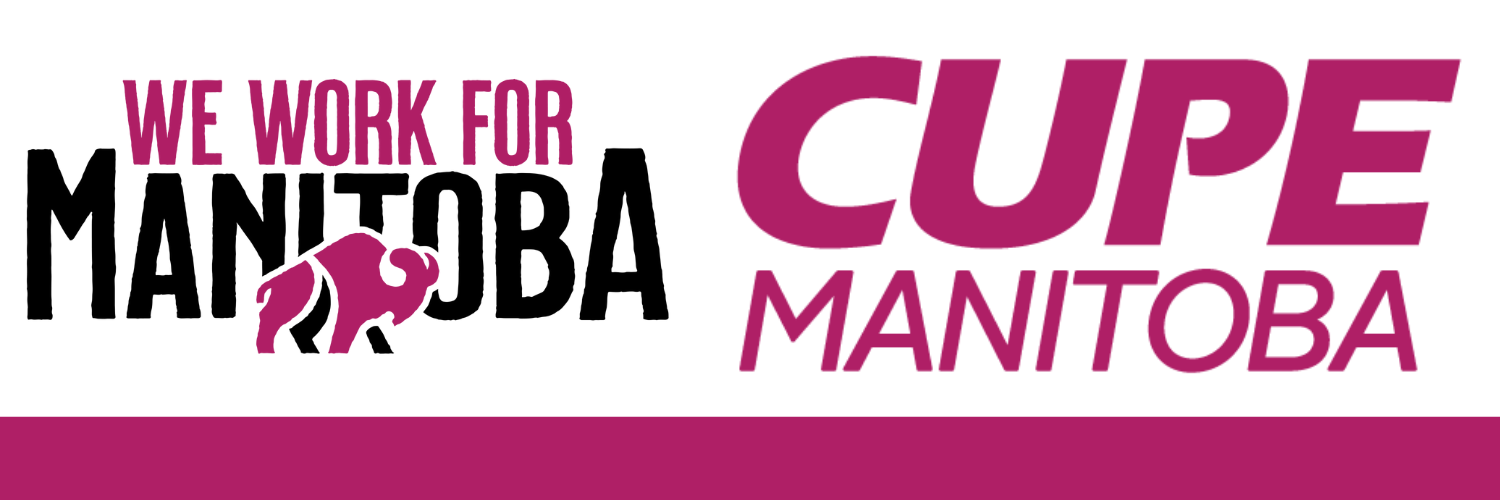CUPE welcomes new members in the WRHA, Shared Health, Southern Health, and the North
All health care workers are now members of their new union.
CUPE is pleased to welcome new and returning members to CUPE: in Southern Health-Santé Sud, the Northern Regional Health Authority, the Winnipeg Regional Health Authority and Shared Health.
CUPE now represents all Community and Facility Support workers in these health authorities.
We want to thank all unions involved in this process and are pleased to say all unions have been working together to ensure a smooth transition of new members.
The Commissioner responsible for implementing The Health Sector Bargaining Unit Review Act has issued interim bargaining certificates, effective as of December 8th (rural RHAs) and December 13th (WRHA and Shared Health), certifying CUPE as your union. He will eventually issue permanent certificates, and the interim ones are valid until that time.
With 36,000 members in Manitoba and 700,000 across the country, CUPE is now the largest union in Manitoba and Canada. We want to live up to the trust you have placed in CUPE.
Please watch for local stewards and representatives in your workplace in the new year, for more health care news, and for information about the bargaining process.
CUPE is also working hard to get to the bargaining table. We want to negotiate a new collective agreement for you.
What happens now?
CUPE now represents you if you are a Facility Support or Community Support worker employed in these health authorities:
– Northern Regional Health Authority
– Southern Health–Santé Sud
– Winnipeg Regional Health Authority (including Churchill)
– Shared Health
- CUPE now represents you for any existing grievances or processes, even if they were filed by another union.
- You will now pay dues to CUPE.
- Your old contract remains your contract until bargaining concludes (even after you join CUPE).
- Once a new CUPE agreement is bargained and ratified by the members, this new agreement will cover you.
How can I find out more about CUPE?
Visit: www.cupe.ca, and cupe.mb.ca
Facebook: @CUPE SCFP, and @CUPE Manitoba
Twitter: @CUPENat, and @CUPEMB
Note to new CUPE members:
CUPE’s structure may be different from other unions.
Here are the basics:
CUPE is a member-driven union, where members are involved directly in decision-making. We believe you know what’s best for your workplace. That’s why your CUPE local is so important.
Shop Stewards, site Vice-Presidents, and your Executive are elected by you, the members, and can be contacted to help with your day-to day needs.
Shop Stewards, along with Union Support Officers, and professional National Servicing Representatives are there to help you when you need union representation at work.
National Servicing Representatives and Specialists (like Legal, Research, Human Rights, Union Development, Safety and Health, Pensions, and Communications) are all available to your CUPE local to help take on arbitrations, human rights issues, and fights against privatization and contracting out.
CUPE National and CUPE Manitoba are also here to support you, and your unique workplace needs.
CUPE’s education department provides training to local Shop Stewards and activists to make sure you have representatives right in your workplace who are equipped with the knowledge and experience to seek information and speak up in meetings with management.
If you were an activist, Shop Steward, or Executive Member in your previous union, please don’t hesitate to contact us about getting involved with CUPE.
When can bargaining begin?
A bargaining unit certificate is the legal document that explains which union represents each group of workers. Now that we have bargaining unit certificates, we can start the bargaining process.
CUPE’s contracts are the best in health care! CUPE ensures that every member can make suggestions on how to improve their collective agreement.
To prepare for bargaining:
- CUPE is working on Essential Services Agreements. These agreements tell us how many staff must work in each facility in the event of job action like a strike or lock out. By law, we cannot bargain until Essential Services Agreements are done.
- Your CUPE bargaining committee will do a bargaining survey electronically and will also distribute paper copies to members who request this.
- The bargaining committee will compile the results of the surveys and prepare the proposal package.
Then bargaining can begin, using the designated receiving agreement as a base.
What can I do?
- Please make sure we have your most recent contact information, including cell phone number and personal email. We do not use work contact information to reach you for union business.
- Do not hesitate to contact CUPE if you have any questions or concerns.
Contact your CUPE Local:
– WRHA & Shared Health: CUPE 204
– President Debbie Boissonneault at 204-775-2873, cupe204.ca@gmail.com, www.cupe204.ca, or Facebook @cupe204
– Southern Health-Santé Sud: CUPE 4270
– President Darrin Cook at drcook@xplornet.com
– Northern Regional Health Authority: CUPE 8600
– President Christine Lussier at cblussier@outlook.com
Shannon McAteer, CUPE Health Care Coordinator, may be reached at:
Phone: 204-942-0343
Email: healthcare@cupe.ca

